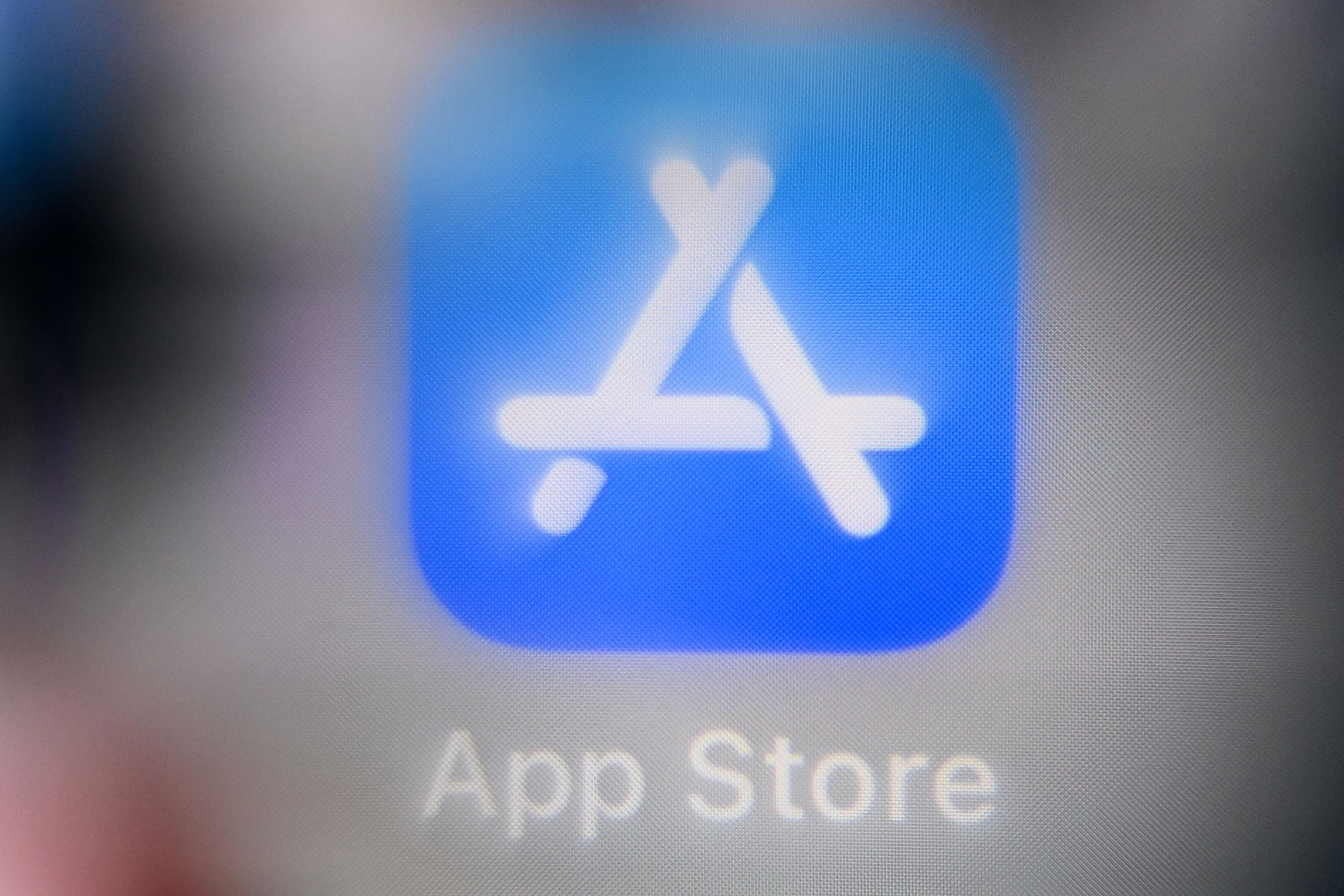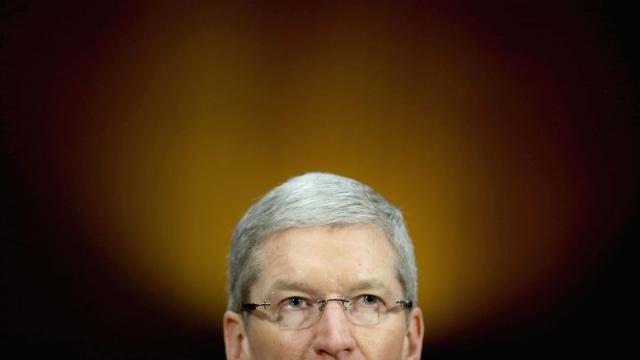Washington D.C. tech industry group The App Association boldly refers to itself as, “the leading industry voice on the app economy,” and says it represents more than 5,000 app makers and connected device companies spread out around 27 countries worldwide. What The App Association’s website doesn’t say is that more than half its estimated $US9 ($12) million worth of sponsorships revenues in 2020 came from one company — Apple.
That’s according to a recent Bloomberg article, which cites sources detailing the group’s deep financial relationship with Apple. Those funds in turn, according to Bloomberg, shape the group’s influential policy priorities from the shadows. Tech transparency groups speaking with Gizmodo claimed The App Association’s (which goes by the moniker ACT) relationship with Apple illustrates a broader trend of Big Tech’s surreptitious infecting of trade group politics with one organisation categorising ACT an, “astroturf lobbying group.”
Responding to requests for comment from Gizmodo, ACT clarified Apple is a sponsor and not a member of the organisation, but went on to confirm that the smartphone maker nonetheless contributed more than 50% of ACT’s sponsorship revenues in 2020. Other major sponsors listed on ACT’s website include Verizon, Intel, AT&T, and Verisign. That 50% figure leaves plenty of room for interpretation. Though ACT didn’t provide a specific dollar amount Apple contributed, sources speaking with Bloomberg claimed the total percentage originating from Apple’s money bags far surpasses 50%.
Speaking with Bloomberg, ACT executives strongly rejected accusations that they essentially act as a front for Apple’s lobbying efforts. Executives said they don’t take direction directly from Apple on policy positions, but will take their top funder’s views into account. Instead, ACT suggests their policy prescriptions may just happen to overlap with Apple’s interests on some issues.
Earlier this month, ACT released its top legislative priorities for the remainder of this Congressional term. Those priority areas include, “Broadband,” “Telehealth and Digital Health Coverage,” “Cryptocurrency,” “Privacy,” “Tax Policy,” “Workforce Development and Education,” and “Intellectual Property.” Given Apple’s immense size and scale, just about every one of those issues potentially affects its business.
ACT rejects claims its a ‘Big Tech front group’
Tech transparency groups speaking with Gizmodo don’t buy ACT’s claims of separation and doubled down on scepticism of its relationship with Apple.
“Just like Google, Facebook, and Amazon, Apple has been caught red-handed concealing their connection to yet another astroturf lobbying group,” Tech Oversight Project Executive Director Sacha Haworth told Gizmodo. “Apple tries to curate its public profile, but they play just as dirty as their Big Tech co-conspirators.”
ACT has sided with Apple on numerous major policy prescriptions in recent years but possibly the most significant of those came on the heels of the Supreme Court’s 2019 ruling in Apple V. Pepper. In a 5-4 ruling, the court sided against Apple and in favour of developers who alleged Apple was monopolizing the market for iPhone apps. In a nutshell, the affirmed developers claim that app market consumers are “direct purchasers,” which means they have the right to sue Apple for increasing prices or other disputes covered under antitrust laws.
ACT’s President, Morgan Reed, emphatically spoke out against the ruling and said ACT was, “extremely disappointed,” with the outcome. “This decision and its categorization of developers as ‘suppliers’ or ‘manufacturers’ to platforms sets a troubling precedent,” Reed wrote at the time.
“ACT, like the Developer’s Alliance and the Connected Commerce Council, is simply the latest organisation exposed as a Big Tech front group,” American Economic Liberties Project Senior Policy Analyst Krista Brown told Gizmodo. “It has taken a number of positions that disadvantage the developers it purports to speak for yet align well with Apple’s agenda.”
ACT, according to Brown, has taken numerous positions over the years that “disadvantage[s] developers it purports to speak for,” all while inevitably aligning with Apple’s agenda.
In a statement sent to Gizmodo ACT’s Senior Director of Global Communications, Karen Groppe, said the organisation saw an increase in sponsorship revenues in 2020 in tandem with its efforts to push forward initiatives on privacy, broadband, and others aimed at helping its members “navigate the early stages of the pandemic.”
“As for the agenda, our members drive the organisation’s policy and legislative agenda,” Groppe said. “This has been happening since 1998.”
Groppe reiterated ACT’s comments regarding Apple’s sponsorship givings refer to 2020 and said the organisation won’t comment on more recent financials until the IRS releases its tax fillings.
Apple’s feud with developers

Apple plays an important and increasingly complicated role in the mobile app economy. The App Store, along with Google’s Play Store, stand alone as the two most prominent avenues for app makers to deliver their services to users. In exchange for that service, Apple charges a fee, or what some would call a “tax” of somewhere between 15-30% depending on the app. That fee’s drawn scrutiny from app developers like Epic, Spotify, and others who claim it’s unfair. Regulators in South Korea even introduced legislation preventing large platform holders like Apple and Google from forcing developers to use their own in-app purchasing system, something many developers worldwide have scoffed at. Apple has repeatedly defended its App Store policies, in Congress and elsewhere, as necessary to maintain safety and quality control on the platform.
Antitrust advocates like Berkman Klein Centre for Internet & Society fellow Bruce Schneier reject Apple’s argument.
“Security is a giant red herring,” Schneier said in an interview with Bloomberg. “It will scare a lot of people. The goal is to protect the monopoly.”
Regardless, the fact that Apple regularly finds itself at odds with developers over its policies make it all the more complicated for ACT, the self described “leading industry voice” on the mobile economy to take undue influence from one of the industry’s primary gatekeepers.
Apple did not respond to Gizmodo’s request for comment.
Big Tech’s increasingly creative approach to lobbying
Apple isn’t the only tech giant lurking in the lobbying shadows.
The Tech Oversight Project cites numerous smaller industry organisations with noted ties to major tech companies in its “Big Tech Wiki,” calling out the groups like Connected Commerce Council and the Download Fairness Coalition, amongst others. One of those groups, the American Edge Project, which heralds itself as a grassroots, bipartisan nonprofit, was recently revealed to have received a $US4 ($6) million donation from Meta allegedly in exchange for vigorously opposing antitrust reforms, according to a report from The Tech Transparency Project. The report claims Mets may have bankrolled American Edge and even served as its founder.
Big Tech’s creative — or sneaky depending on your perspective — approach to lobbying comes amid an absolute political spending frenzy. Since 2021, Bloomberg estimates Apple, Amazon, Google, and Meta combined spent $US95 ($132) million on lobbying, no small part of which reportedly went towards efforts to crush impending antitrust legislation down to a shapeless pulp. Apple, for its part, reportedly spent a company record high $US2.5 ($3) million on lobbying in the second quarter of 2022. That might not sound absurdly high, but it’s worth noting the figure represents a nearly 100% increase from the amount spent the same time the previous year.
Haworth of the Tech Oversight Project, who’s organisation advocates in favour of stronger antitrust legislation, told Gizmodo Apple’s previously unknown connections with ACT are all the more reason to pressure lawmakers to push forward a vote on legislation at risk of being buried under other Democratic priorities.
“Unless we rein in these tech monopolies, they will continue to cripple competition and bleed small businesses and start-ups dry,” Haworth said.
Brown, of the AELP, similarly said that Apple’s ACT connections reveals wider problems plaguing the industry and urged lawmakers to put a spotlight on Big Tech’s alleged financial meddling.
“It’s a clear example of the ways Big Tech money directs much of the narrative in Washington,” Brown said. “It’s a serious issue, and one lawmakers and enforcers would be wise to keep top of mind as they consider efforts to rein in Big Tech’s power.”
